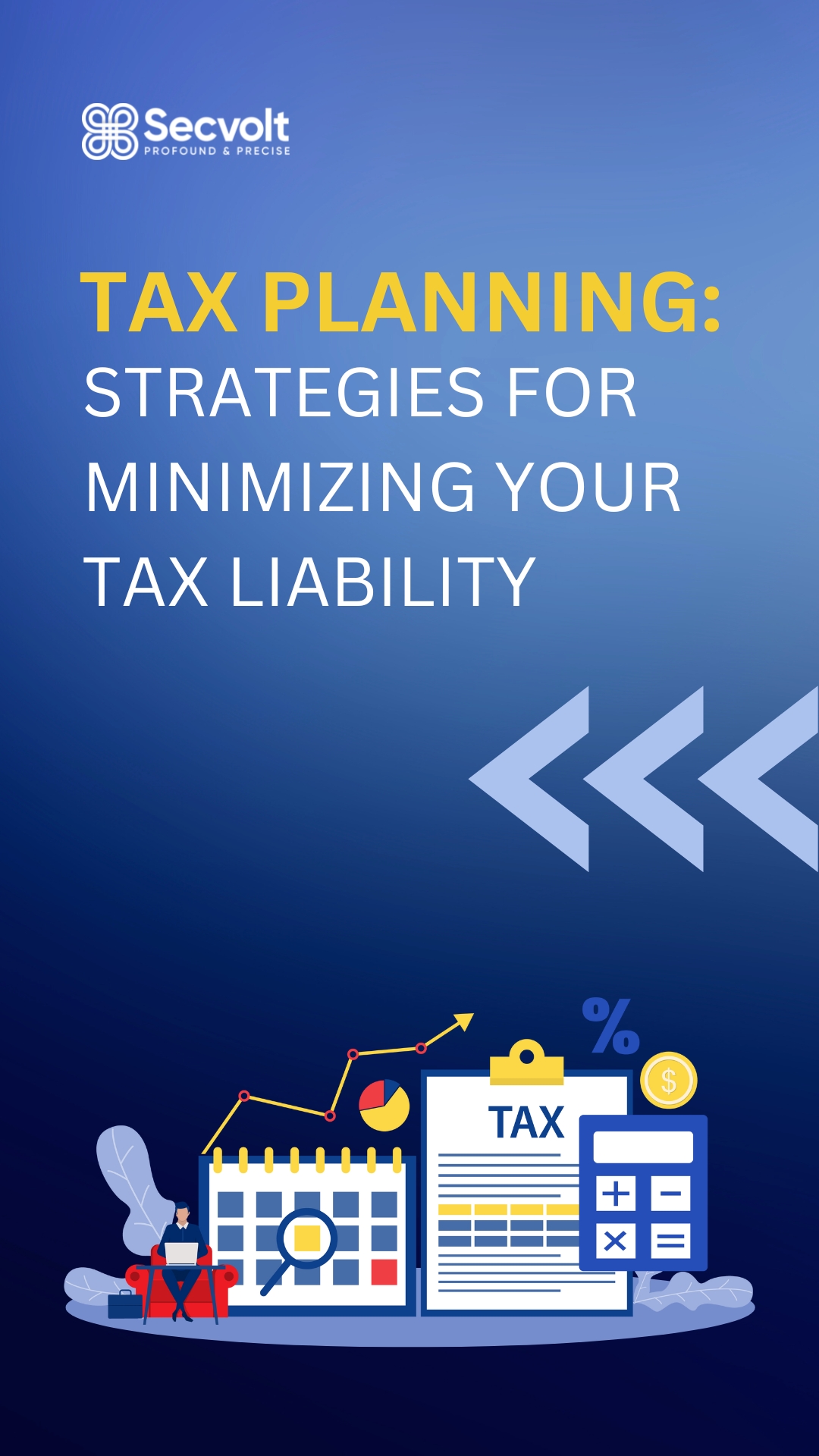When it comes to tax planning, the goal is simple: minimizing your tax liability. As April 15th looms closer, many of us start to feel the weight of filing our taxes. But with the right strategies and a bit of planning, tax season doesn’t have to be a stressful time. In this blog post, I will share some personal insights and provide useful information on effective tax planning strategies.
1. Understanding Tax Deductions and Credits:
One of the most crucial aspects of tax planning is understanding the various deductions and credits available to you. Deductions reduce your taxable income, while credits directly reduce the amount of tax you owe. When you know which deductions and credits you qualify for, you can maximize your savings.
For example, if you’re a homeowner, you may be eligible for deductions on mortgage interest, property taxes, and even home office expenses if you run a business from your property. Additionally, if you have children, there are tax credits available for childcare, education expenses, and even adoption costs. Researching and identifying all applicable deductions and credits is a significant step towards minimizing your tax liability.
2. Retirement Contributions:
Contributing to retirement accounts not only helps secure your future but also provides immediate tax benefits. Whether you have a 401(k), IRA, or a self-employed retirement plan, contributing money to these accounts reduces your taxable income. The money you contribute grows tax-free until you withdraw it during retirement.
Suppose you’re self-employed or have a side gig in addition to your regular job. In that case, you can explore the option of setting up a Solo 401(k) or a Simplified Employee Pension (SEP) IRA, which allows you to contribute a higher amount compared to traditional retirement accounts. By maximizing your contributions to retirement accounts, you not only save for the future but also reduce your current tax burden.
3. Charitable Giving:
If you’re passionate about making a positive impact while also reducing your tax liability, charitable giving is a great option. Donating to qualified charities or nonprofit organizations can lead to potential tax deductions. Keep in mind that not all donations are tax-deductible, so it’s important to research and ensure your chosen charity qualifies under IRS guidelines.
Furthermore, if you have appreciated assets like stocks or real estate, donating them directly to a charity can provide even greater tax benefits. By doing so, you can avoid capital gains taxes on the appreciated value, while still receiving a deduction for the fair market value of the donation.
4. Tax-Efficient Investments:
Investing wisely can have a significant impact on your tax liability. Understanding different investment instruments and their tax implications is essential. For example, if you’re in a high-income bracket, investing in tax-free municipal bonds can provide tax-free income. Alternatively, contributing to a Health Savings Account (HSA) allows you to invest pre-tax dollars, which can be withdrawn tax-free for qualified medical expenses.
Additionally, timing your investment activities can also be beneficial. For example, if you’re planning to sell stocks or other investments with significant gains, consider doing so after holding them for more than a year. This way, you’ll qualify for long-term capital gains, which are typically taxed at a lower rate than short-term gains.
5. Taking Advantage of Tax-Advantaged Accounts:
Utilizing tax-advantaged accounts can be an effective strategy for minimizing your tax liability. For individuals with high deductible health insurance plans, a Health Savings Account (HSA) allows you to set aside pre-tax dollars for medical expenses. The contributions are tax-deductible, the funds grow tax-free, and withdrawals for qualified medical expenses are also tax-free.
If you have dependents, it’s worth exploring options like Flexible Spending Accounts (FSAs) and Dependent Care FSAs. These accounts allow you to set aside pre-tax dollars to cover eligible expenses for medical care and dependent care, respectively.
6. Keeping Accurate Records:
Lastly, maintaining accurate records is crucial for effective tax planning. Keep track of all your income sources, expenses, and supporting documentation for deductions and credits. This includes receipts, invoices, and bank statements. By organizing and maintaining these records, you’ll be better prepared to maximize your tax savings and avoid potential issues during an audit.
In conclusion, tax planning should be an ongoing process throughout the year, not just when tax season approaches. By understanding the various strategies available and making informed decisions, you can effectively minimize your tax liability. Remember to consult with a qualified tax professional or financial advisor to ensure you’re making the most suitable choices based on your individual circumstances. With the right tax planning strategies in place, you can navigate tax season with confidence and keep more of your hard-earned money.
